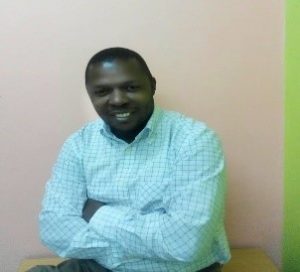Branch
Select your branch
Interview with Lightning Africa
Lighting Africa is a joint initiative by the International Financial Corporation (IFC) and the World Bank with the vision of enabling more than 250 million people across sub-Saharan Africa to gain access to clean, affordable, quality verified off-grid lighting and energy products.
Lighting Africa has the following main objectives:
a) To contribute to rural electrification, to be achieved dominantly with off-grid solar lighting products.
b) Switching from non-quality verified and counterfeit solar products to reliable solar-products meeting Lighting Global Quality Standards.
c) Collaborate with various stakeholders with common goals and plans for achieving rural electrification with solar products, and;
d) Finding solutions for making solar available for both productive and consumptive usage.
IFC and World Bank are also implementing a dedicated mini-grid project in Tanzania to contribute to rural electrification. We interviewed Colin Gumbo from Lightning Africa and discussed their recent activities and future goals to understand the landscape of the solar-industry in the coming years.

Since when has Lighting Africa established its presence in Tanzania? What are the activities you have engaged in since then and what are the major challenges?
The Lighting Africa/Tanzania Program was initiated in the country in September 2016. One of the major challenges for all solar companies has been to convince the rural population of the reliability and benefits of quality-verified solar-powered equipment as compared to cheap and easily accessible non-quality verified solar products and other electric products for lighting. Since solar lanterns became affordable and gained access into the African markets, there has been a huge influx of counterfeit and non-quality verified products.
These products are very likely to be faulty and have shorter lifetimes, which can consequently discredit solar-products in the long run. People who bought these cheap solar products from the local shops have had a bad impression of solar-powered technology since they have only experienced faulty products.
As soon as we entered the Tanzanian market changing that negative perception was the immediate and most important challenge for us to tackle. Especially since many retailers and solar-product distributors couldn’t themselves differentiate between genuine and counterfeit solar products, as underscored by IFC-funded market intelligence study whose findings were released in January 2018. We have taken up the responsibility of contributing to market transformation to improve the penetration of quality-verified solar products into the market.
However, with IFC/World Bank support through the Lighting Africa/Tanzania Program, the Tanzania Bureau of Standards (TBS) has adopted Lighting Global Quality Standards and set-up a lab to test solar-products for quality assurance. It remains a challenge to completely free the market from existing non-quality verified and counterfeit products and we continue working with TBS, Tanzania Renewable Association (TAREA) and other development partners towards enforcement of adopted standards.
“Shine with Solar, that’s the way to go!”
Collin GUMBU
Consultant, Lighting Africa (Tanzania)
How do you communicate with the local agents in various rural areas to train them? Do you work in partnership with other stakeholders in the industry?
Lighting Africa/ Tanzania works with almost all the stakeholders in the market including TAREA, REA, TBS and companies with quality-verified products like Azuri, Greenlight planet, Omnivoltaic Energy Solutions, Amped Innovation Inc. and d.light. We work with these companies to create sound, local supply chains to ensure availability and to enhance awareness of quality verified solar products through the ongoing program’s consumer education campaign dubbed “Ng’aa na sola ndo mpango mzima” (“Shine with solar, it is the complete deal”).
What is your perception of the consumers’ willingness to adopt solar technology?
Rural communities are well aware of the effects of using kerosene lamps on their health. Through the awareness campaigns by TAREA and development partners SNV (Netherlands Development Organization) and GIZ (Deutsche Gesellschaft für Internationale Zusammenarbeit), kerosene lamps are famously unpopular. Many communities prefer using solar products simply because they are cheaper and more convenient to use in addition to being safer. The PayGo (pay-as-you-go) system is ingrained into the rural economies across the country. People use their mobile phones and mobile-payment accounts as their bank-accounts since they
can set-up a mobile-account simply by having a sim card and a device to operate the sim card. So making pay-as-you-go payments possible through mobiles accounts of the likes of ‘MPesa’ has given the solar companies a huge advantage.
We sensed frustration amongst people due to poor reliability of counterfeit products but if you give them quality products they are very willing to install them. Lighting Africa/Tanzania aims to use solar-products for enabling people to earn a living and make productive use of the technology.
And hence people will hopefully start seeing it as a medium to improve their quality of life rather than just as a source of electricity.



